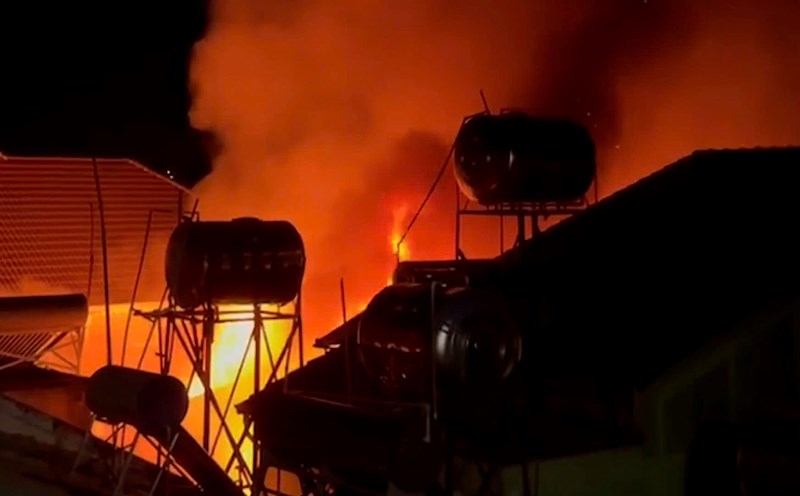The photo of a whale stuck at the bow of an oil tanker was recorded at the port of Mizushima, Japan. The Coast Guard office Mizushima confirmed to Business Insider that the dead whale was a 5-ton male Bryde whale.
Bryde whale belongs to the grayback whale family. Bryde whale feeds in a flock and is widely distributed across tropical and subtropical waters. Bryde is considered a very mysterious animal, with a body length of 10-12m and a weight of up to 15 tons.
Locals discovered the body of a Bryde whale when the tanker entered the port in Kurashiki city, western Japan last month. The photos were first published in Yomiuri Shimbun, one of Japan's five national newspapers.
According to Yomiuri Shimbun, the crew of the tanker ship did not know that they had towed the whale's body as the ship moved in the Pacific Ocean.
"I have lived there for more than 80 years, but this is the first time I have seen this scene," a local resident watching the tanker told the Daily Mail.
A spokesperson for the Mizushima Coast Guard also confirmed that this was the first time such an incident had been recorded. The agency is investigating and finding ways to prevent similar incidents in the future. In the photos released by the Coast Guard, the name of the boat that stabbed the whale in the mouth has been obscured.
The World Wildlife Fund (WWF) said that train collisions are considered one of the leading causes of death for endangered and vulnerable whale populations.
Michael Fishbach, CEO and co-founder of Great Whale Conservancy, an environmental nongovernmental organization based in North Carolina, noted that dozens of elephants killed by a ship each year are recorded.
He pointed out that normally, the whale that is stabbed to death will sink straight to the bottom of the sea. Therefore, the case of a Bryde whale being stabbed to death by a Japanese ship and dragging its body to shore like that is rare because the whale was stabbed in the middle of its body.
Wildlife experts emphasized that there is no doubt that the number of whale stings by container ships each year can reach about 1,000 and about 60% of the number of whale stings are container ships.





